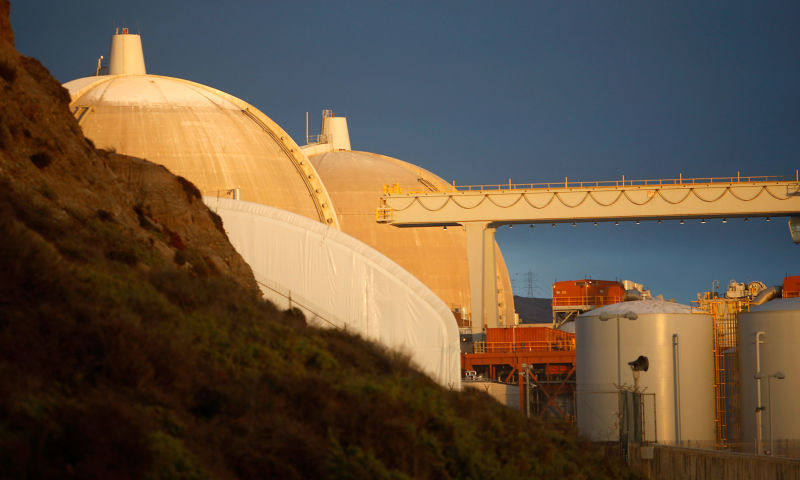Picker submitted the behested payment report, a filing required when a public official solicits $5,000 or more on behalf of a third party, on March 13. It lists donations made by a variety of organizations in attendance at a $250-per-plate gala held as a retirement party and tribute to Picker’s predecessor, former PUC president Peevey.
The swanky affair, which drew a roster of politically influential guests and was emceed by former San Francisco Mayor Willie Brown, was held in February at the Julia Morgan Ballroom in San Francisco. It also attracted a crowd of protesters.
Picker’s behested payment report discloses contributions of $5,000 apiece, collected at the dinner, from entities such as the International Brotherhood of Electrical Workers Local 1245 (the politically influential employee union of Pacific Gas & Electric Co.), Solar City, the California State Council of Laborers and other organizations.
Picker is listed as the public official who solicited the contributions, which totaled $65,000. According to the report, all of the proceeds went to UC Berkeley’s Goldman School of Public Policy, where Peevey had served as a member of the Board of Advisors. In light of the controversy surrounding Peevey, however, Goldman School Dean Henry Brady announced in March that the school would not accept the donation.
Brady said the event had not been intended as a fundraiser for the school: “We were merely to be the beneficiaries of excess funds generated by the event.” Spokespeople at UC Berkeley and the UC Office of the President said they did not know where the funding went after being declined by the Goldman School of Public Policy. According to Shelly Meron, a spokesperson at the UC Office of the President, "the UC systemwide office did not receive this donation."
So where did the $65,000 go? It isn't formally documented anywhere. Constance Gordon, a CPUC spokeswoman, indicated that she was unable to determine where the donations went. At the same time, she said Picker would comply with the FPPC's request for more information.
Don Solem, president of public relations firm Solem & Associates, helped organize the Peevey tribute dinner as a co-chair. In an interview he explained that once the funds were declined by the Goldman School of Public Policy, they were divided up between various nonprofits that work on educational, charitable and social-service issues. "It didn't go to anything political," Solem said.
In a separate battle relating to transparency, the chair of the Assembly Committee on Utilities and Commerce has asked Picker to disclose email records relating to the San Onofre Nuclear Generating Station (SONGS) decommissioning deal in March. After months of exchanges, Picker has not provided any of the requested information.
Questions surrounding the decommissioning deal arose when evidence of private dealmaking surfaced between the plant operator, Southern California Edison, and some members of the CPUC. The nuclear plant was shut down after faulty steam generators caused a small radioactive leak, and the decommissioning deal arising from the shutdown resulted in ratepayers footing the bill for a $4.7 billion settlement.
Assemblyman Anthony Rendon, who chairs the Assembly Committee on Utilities and Commerce, fired off a legislative inquiry March 19 directing Picker to provide to the Assembly committee without delay “all internal and external emails relative to the SONGS, the investigation of the steam generators at SONGS, and the potential settlement or eventual settlement of the SONGS decommissioning with the CPUC.”
But in his most recent response in a chain of correspondence, sent July 24, Picker essentially telegraphed to Rendon that he would not be receiving the information anytime soon. He said he was following "strict prohibitions on release of information provided to the commission from the utilities," citing a section of PUC code that also included "the prospect of criminal liability for ... making an improper disclosure."
Rendon had set a deadline of July 31, but that date came and went without any records being provided. Rendon is expected to make another attempt this week to require the disclosure of records.
Note: This post has been updated from an original version to reflect the comments of Don Solem.
